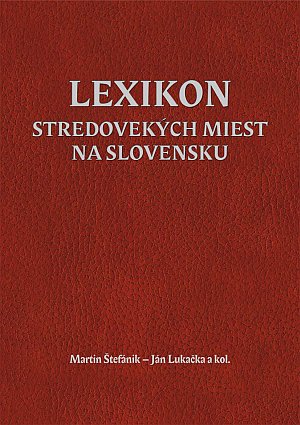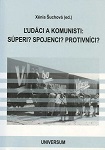
We kindly inform you that, as long as the subject affiliation of our 300.000+ articles is in progress, you might get unsufficient or no results on your third level or second level search. In this case, please broaden your search criteria.















Vznik Československa r. 1918 zastihol Slovensko uprostred procesu premeny z tradičnej na modernú občiansku spoločnosť. Narážali v ňom na seba dve protichodné tendencie: tiahnutie ku konzervativizmu sa odrážalo vo vysokej miere religiozity; modernizačná tendencia sa - okrem iných relevantných znakov -prejavila v prudkej, až agresívnej dynamike politického a verejného života. Obe poznačili aj „zžívanie sa“ domáceho obyvateľstva s vyspelejším a „modernejším“ českým národným elementom v novom spoločnom štáte. V podmienkach hospodárskeho liberalizmu a parlamentnej demokracie, vyznačujúcej sa na jednej strane rozsiahlymi ústavnými právami a slobodami, na druhej strane recipovanými zákonmi rakúsko-uhorskej monarchie, tento prechod nemohol byť priamočiary ani bezbolestný.
More...
Ideologies of Socialism (Communism) and political Catholicism participated markedly in the political discourse of interwar Slovakia. Their political representations – the Social Democratic (or Communist) Party and the People´s Party – operated here as stable components of the political and public spheres. After the Republic came into existence in 1918, both ideological movements strove to reassert themselves as mass political parties in order to shape the political identity of the population by means of their own particular discourse. However, their aspirations were both stimulated and restrained by the cultural background of the Slovak, still partially urban, partially rural, society. Such an environment was held over by traditionalism and strong religiosity. The first part of the paper discusses the confrontation and conflict between the Socialist ideology and the political Catholicism both in general and at a concrete political (discursive) level. The second part is an analysis of the specific relation of the Socialist ideology to Christianity, church and religiosity in theory and praxis, and the ways of coping with this phenomenon in the Slovak society in the first quarter of the 20th century.
More...
The article deals with the ambiguous concept of the national and the specifically “Slovak“ questions as applied by the Czechoslovak Communists in the first half of the 1920s. Two contradictory concepts – the Austro-Marxist slogan of cultural and territorial autonomy within a multinational state and the Bolshevist claim to national self-determination leading to the separation from such a state – were followed by different streams of the former “Marxist Left“ and, later, the Communist Party of Czechoslovakia (CPC). Since the Party´s activities were legal within the framework of parliamentary democracy, the search for some kind of autonomous application of the Communist International resolutions on national policy, which were binding for the Party, was marked with sharp factional struggles. On the one hand, the faction of Slovak “Communists-Nationalists“ (Slovak: “nacionálni komunisti”), belonging to the radical Left, challenged the concept of cultural autonomy and broad local self-government formulated by the moderate leaders of the Communist Party. On the other hand, it faced the slogan of full political autonomy voiced by the Slovak People's Party in accordance with the Pittsburgh Agreement. The Resolution on the National Question adopted by the 5th Congress of the Communist International held in 1924 eliminated all differences. As a result, the uniform ”revolutionary” solution to the national question was definitely imposed upon the CPC´s policy by the Executive of the Communist International in 1925.
More...
At first sight, concepts concerning the position of Slovakia at the international scene after WW I proposed by the Communists, the Autonomists (Slovak: ľudáci) or the Hungarian Irredentists may not seem interrelated. Nevertheless, a deeper study into these proposals reveals certain points of contact among them. It is because they wanted to attain the same goal but suggested different ways to do so. First of all, they called for the abolishment of the status quo produced by the coming-into-existence of the Czechoslovak Republic. Whilst the Autonomists, represented by the Slovak People´s Party, demanded equality between the Czechs and the Slovaks in their own common state, the Irredentists desired to restore the status ante the year 1918, and the Communist Party of Czechoslovakia forwarded a novel solution to the national question in terms of proletarian internationalism. The activity of Irredentists resulted in contacts of the representatives of these three concepts.
More...
In the First Czechoslovak Republic, Slovakia remained its backward agrarian part because of its less developed economic structure. The Slovak agriculture suffered from unequal distribution of land, which caused the “hunger for land” among the poorest farmers – a majority of the Slovak population. The land reform, expected to solve this problem, was carried out according to laws issued by the Parliament, usually in agreement with the Agrarian Party’s policy. The study briefly outlines the development and results of the reform. It also shows the relations and political attitudes of Hlinka's Slovak People's Party and the Communist Party of Czechoslovakia to the land reform and its accomplishment in Slovakia. The focus is on the 1920s.
More...
When the First Czechoslovak Republic came into existence, favourable conditions made way to founding trade unions in Slovakia. The rise of Christian trade unions was viewed not only as an effort to solve the workers´ status according to the papal encyclical Rerum Novarum but also as materialization of Christian political parties´ interests. Since several political parties presented themselves as Christian ones, several Christian trade unions operated in Slovakia. The Christian Social Trade Union Association of Workers turned into the most important trade union organization in Slovakia when Rudolf Čavojský became Chief Secretary in autumn 1923. Čavojský also deserves credit for the participation of the Association in concluding collective agreements and strengthening its position among trade unions. Although the study concentrates on cooperation and confrontation between the Christian and the Communist trade unions from 1939 on, it also briefly deals with the period when the Christian trade unions held the monopoly position in Slovakia.
More...